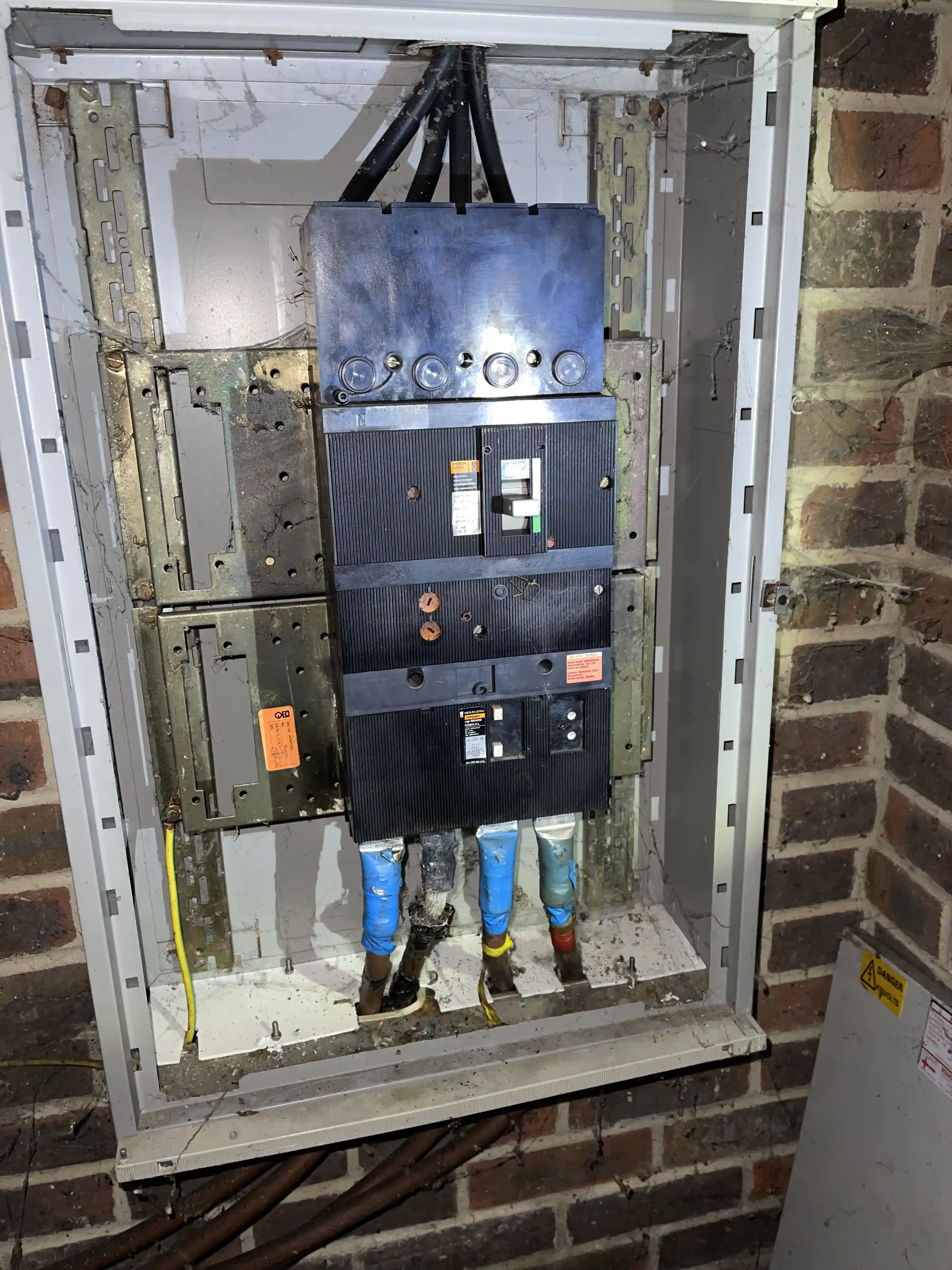Open 24 hours a day, 7 days a week, 365 days a year. We reach you within 30 minutes of your initial contact with our team. Our expert commercial and domestic engineers are fully qualified by City & Guilds to solve emergency problems.
Call Now 02034881842If you've ever built an electronic device you've probably heard about electrical components. These are physical entities that affect electrons and their associated fields. You probably have some knowledge of how these components work but if not this article will help you understand them. Continue reading to learn more about these vital components and how they affect electrical circuits. Let's start with the basics. Firstly what's an electronic component? In electrical engineering an electronic component is any device that has an active or passive component.
Voltage sources are electrical components that deliver electricity. The ideal voltage source has no internal resistance but practical voltage sources are not ideal. Therefore the terminal voltage of these components is less than the actual voltage. Additionally they can only deliver a finite current the amount of current that can be delivered depends on the internal resistance of the source. In other words no practical voltage source will produce an unlimited current. Because of this it is possible to model the internal resistance of a real voltage source using a non-zero resistor in series with the ideal voltage source.
Ohmic and non-Ohmic conductors are widely used in electronic circuits and electronic components. The Ohmic type of conductor is defined by its resistance to change with voltage. Ohmic conductors include metals and metal alloys. Their relationship with voltage and current follows Ohm's law and they can be calculated. However you must understand what Ohmic conductors are. What is a non-Ohmic conductor?
A transistor is an electrical component that transforms electric current into mechanical energy. The device's basic structure is made of three leads: the Emitter Base and Collector. This three-lead structure is referred to as a 'point contact transistor'. Several variations of this type of semiconductor were introduced over the years including bipolar junction transistors which are more durable and easier to produce. In this article we will review some of the basic types of transistors and discuss some of the advantages and disadvantages of each type.
A diode is a device in electrical circuits that prevents current from flowing in the wrong direction. A positive voltage is applied to a diode and a negative voltage causes it to behave like an open circuit. Diodes require a threshold voltage to operate properly and a very high negative voltage will destroy it. In a circuit the threshold voltage is the highest voltage a diode will tolerate and the voltage should never be higher than this.
Resistors are essential parts of electronic circuits and electrical networks. They regulate the flow of current divide voltage and bias active elements. There are many varieties of resistors and each one has different applications. They are often implemented within integrated circuits and come in various forms and qualities. The following information will describe their various applications. Read on for more information about the role of resistors in electronic circuits. In the following paragraphs we will discuss their characteristics and benefits.
LEDs are semiconductor devices. As such they require certain specifications to produce a high-quality product. These parameters include the size of the LED diode the material used for the semiconductor the number of layers it contains and the types of impurities used in the "doping" process. Impurities in LEDs affect the way they function as an electronic device. The most common ones are zinc silicon germanium tellurium and phosphor.
If you want to install the electrical components in your home you should opt for Circuit Breaker Fuse Switch. This component is more secure and has a higher voltage capacity than a fuse. It will prevent power surges and is also safe to use. However before choosing the right product you must hire a professional electrical contractor. In this article you will find information on the benefits of Circuit Breaker Fuse Switch.
A Circuit Breaker Fuse Switch is a great choice for any home electrical system. It's simple to understand why a circuit breaker is a better choice as replacing a fuse will allow excess current to pass through and may even cause an electrical fire. On the other hand a circuit breaker has an internal switch mechanism that protects electric instruments from overcurrent and overheating. Both circuit breakers and fuses work by protecting a particular circuit but there are advantages and disadvantages to both.
A circuit breaker is a switch that is designed to protect electrical circuits from overcurrent. Overcurrent is caused by a current exceeding the rated load of an electrical circuit. This happens in many different circumstances including overcurrents overloads and short circuits. A circuit breaker provides both short-circuit and over-load protection. They can be mounted or field-replaceable and can be used on different circuits. These devices can also have different cost considerations.
Power surges can occur for several reasons. Lightning is a primary culprit but other factors may also lead to power surges. If you notice lights flickering or electronics flashing "12:00," you may be experiencing a power surge. Surges can also cause damage to electrical appliances plugged directly into an outlet. If you live in a frequently blackout area surges may be especially dangerous.
A circuit breaker is an electrical component that protects the wiring and system from overcurrents and is also known as a safety switch. In homes they are required by law. They protect people from fires and electrocution by checking the current that is running through live wires. By installing a circuit breaker you are ensuring that there is no overcurrent or fire.
If you're considering installing a circuit breaker or fuse switch in your home you'll find that they're both easy to install. This is because they both protect against power surges. However there are a few differences between them that make the process a bit tricky. Fuse switches can be used for larger circuits but circuit breakers are generally easier to install. Circuit breakers can take minutes to respond to surges while fuses stop electricity almost instantly.

£30 call-out fee
Competitive Call out fee

Quick response
We can dispatch Our engineer fast to your property within time of 30-90 minutes of your call, and we are available 24/7 365 days.

Payment upon completion of work
We never request payment upfront. With our service, you only pay when you're completely satisfied.

Certified
Our electricians come highly recommended by numerous satisfied customers. Additionally, we hold certifications from esteemed industry trade bodies.
Reach out to us
Choose a suitable appointment
Our engineer is on the way to resolve the issue

We are offering 24-hour a day chat support on the web. Please click the button below to chat with one of our representatives.
Click to Chat With Us
We are offering a 10% discount for the volunteers and workers of the following organizations:
Power Cut
Panel Repair
Fuse Box is Tripping
Power Restoration
Socket and Switch Relocation or Repair
Burglar alarm
Carbon monoxide alarms
Fire alarm
Door entry system
Electric boiler
Underfloor heating
Night storage heaters
Radiator
Heating
Air conditioning
Hot water boiler
Power shower
Storage heater and hot water immersion heater
Hot water cylinder
Immersion heater
Smart thermostats
Hot tub wiring services
Automated gates
Electric shower
Rewiring
3-phase electrics
Car charger
Consumer unit replacement
Fuse box upgrade
In case of electrical problems, call an emergency electrician for fast response to your emergency call, ensuring safety regulations and NICEIC approved quality for a range of electrical services including electrical installations, fault finding, and handling electrical faults such as power outages, electrical fires, or issues with heating electrics; our emergency services cover both domestic and commercial properties, with our emergency plumber ready to assist and guarantee customer satisfaction in home services—company number provided for all your electrical system needs. In the event of an electrical emergency, our emergency electricians are ready to handle all electrical emergencies, whether it's a power outage, electrical fire, or issues with your fuse box or consumer unit. We offer competitive rates for all electrical work, ensuring excellent electrical safety and installation condition for both domestic electrical and commercial electrical needs. As an approved contractor, we pride ourselves on top-tier customer service and reliability.
We provide and handle emergency electrician services as company Grip Electric Limited in Area.
In electrical emergencies, our professional emergency electricians provide top-notch emergency electrical services. Whether it's an electrical emergency with a consumer unit, electrical work, or other electrical issues, our emergency services are designed to handle all types of electrical emergencies efficiently.
£63 per 15 minutes**
Signs that you need to call the electricity supplier rather than an Grip Electric Limited
If
1. All of your switches are up and not tripped in the Fusebox or consumer unit.
2. Check your meter as well that it's topped up,
3. Then, you will need to call an electricity supplier rather than an emergency electrician. Here is a comprehensive list of electricity suppliers and their contact details that we have prepared for you
British Gas, E.ON, EDF Energy, npower, Scottish Power, SSE, SSE Southern Electric, Bulb
Please dial 105 for nationwide electricity supplies UK power network and press 2 for power cuts. If they suggest that you need an emergency electrician, then give us a call or chat with the support team. An emergency electrician will be arranged within 30 minutes. If you are in an area that is not covered, search online for an emergency electrician near me, and you will be able to find someone very close to you.

Terms and conditions
15 minutes service charge applies first hour and all prices are excluding VAT materials